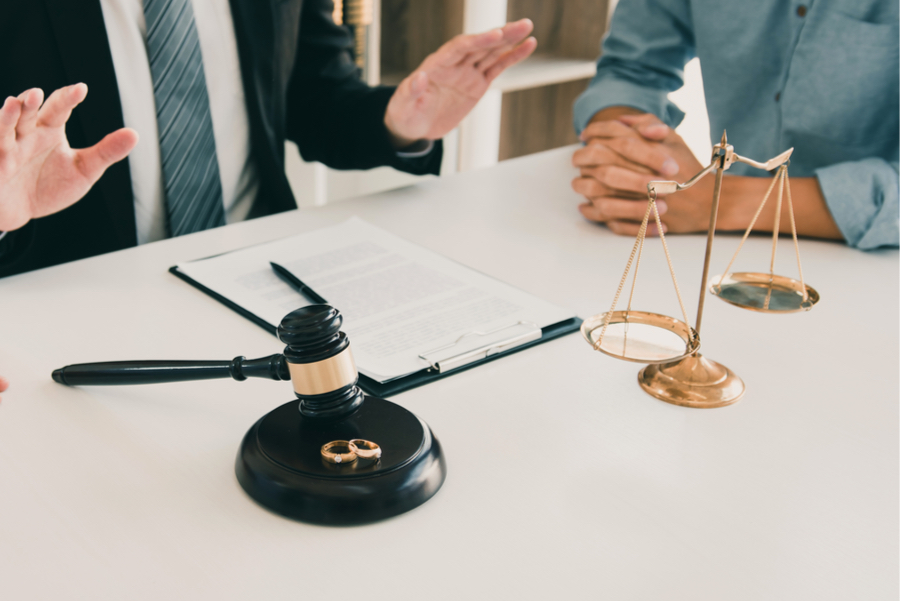Reasons Why Personal Injury Lawyers Could Decline To Take Your Case (& What To Do Next)

If you’ve been injured in an accident that was caused by someone else’s negligence, you have a legal right to seek damages (monetary compensation) for the cost of your injuries. Your best chances at recovering a fair settlement will lie with a local personal injury lawyer, who can investigate your case, explain your options, negotiate with the insurance company, and aggressively pursue the full amount that you deserve. However, finding the right personal injury lawyer to represent you is not always a straightforward process.
For one thing, the lawyer you choose to represent you will make a difference in the type of settlement you can expect to receive. Not all personal injury lawyers are equally good at what they do. You need to hire an attorney or group of attorneys with extensive experience, many local connections in the courts and the community, and a winning track record of great results in cases that are similar to yours. Depending on where you live, this may require careful research on your part, but there is also a possibility that the attorney you reach out to may decline to take your case. This isn’t the norm, but it does happen. If you are currently in the process of searching for representation, you should be prepared for that possibility and know what you need to do next!
They don’t have the capacity for a case like yours.
Especially if you contact a solo personal injury attorney or a small firm, personal injury lawyers could decline to take your case simply because they don’t have the capacity to handle it. They may be swamped with other demanding cases and be unable to make the time commitment your case requires, or they may not have the necessary experience or expertise handling cases like yours. For example, if a lawyer or firm is dedicated to vehicular accident cases, and your case involves nursing home abuse or medical malpractice, they may choose not to represent you.
If a personal injury lawyer declines to take your case for this reason, it’s not personal, and there are likely many other firms who would be happy to help. Ask for recommendations from the attorney or do your own research in order to find a firm that does have the capacity and expertise for your situation.
The statute of limitations has passed.
According to Florida law, injured accident victims cannot file lawsuits past a certain deadline. Many people don’t know this, but once the statute of limitations has expired, unless special circumstances are involved, damages can no longer be recovered. The statute of limitations in vehicular accident claims and premise liability claims is four years from the date the accident occurred, but for medical malpractice or wrongful death claims, it is only two.
If you are coming to any lawyer after this date, there may not be anything they can do for you at this point. They may be able to guide you towards other forms of financial assistance, or try to see if there are extenuating circumstances in your case, but they cannot pursue damages if the statute of limitations is up.
Your projected recovery is low, or you were mostly at fault for the accident.
Most lawyers charge on a contingency fee basis. This means that they don’t charge clients anything upfront; when they recover a settlement, their fee comes as a percentage of the settlement they recover. The larger the settlement they recover, the more they get paid, and the more their client makes as well. It’s a win-win situation except in cases where the injuries are extremely minor, and the settlement isn’t likely to be sizable. Remember that recovering damages in a lawsuit can take a long time – weeks, months, or even years – and that lawyers put countless hours into advocating for a settlement. If they don’t think that their return on investment is going to be worth their while, they may choose to decline the case.
Another reason that personal injury lawyers could decline to take your case is because you were more than 50% at fault for the accident that left you injured. Florida has something known as a “modified comparative negligence standard” in personal injury cases. You can recover monetary compensation up to the percentage at which you were at fault for the accident as long as you were less than 50% at fault. For example, imagine that you were T-boned while driving. The other driver was texting and not paying attention, and pulled into your lane without seeing you. However, you were speeding excessively, and may have been able to decrease the impact of the crash or even avoid it entirely if you had been going slow enough to brake or swerve. You may be 50% at fault for this accident, depending on what the police report shows; in that case, you can only recover 50% of what the settlement would have been. If you were seeking $100,000 in damages, you will be limited to recovering $50,000 maximum (for example).
Ultimately a jury or judge will make the decision about how much fault you share, but a lawyer may conclude from an initial investigation, or even your verbal explanation of your accident, that your comparative negligence will result in a lower settlement, and because of their contingency fee arrangement, may not wish to represent you. It will be harder and require more effort on their part to secure a settlement if you were significantly at fault, and their reward will be lower.
This does not mean that you cannot contact other lawyers and see if they will be able to take your case; some lawyers won’t be bothered by the prospect of a lower recovery or offer to charge on a flat fee basis instead, which may be economically feasible for both of you. It’s always a good idea to get a second opinion, as well – another lawyer may investigate your case and conclude that your recovery is much higher than a previous lawyer estimated!
They have a conflict of interest.
The bar that governs attorneys has ethical rules that would prevent a prospective lawyer from taking on your case if their own interest interferes with their ability to effectively pursue compensation for you. Conflicts of interest are rare but not unheard of; if your lawyer was personal friends of the driver that hit you, for example, or if the surgeon who injured you is related to them, personal injury lawyers could decline to take your case (as they should), and you can search for another personal injury attorney who doesn’t have any connections that would hinder them from securing the highest settlement possible for you!
Your personal injury lawyer could decline to take your case, but other lawyers may not. Get a second opinion – contact The Florida Law Group today!
Unless your case is past the statute of limitations, our skilled Florida personal injury lawyers may be able to help you get the justice you deserve, even if other personal injury lawyers have declined to take your case. Call today to schedule a free consultation and learn what we can do for you! To date, our lawyers have recovered over $1 billion dollars for accident victims around the state.


